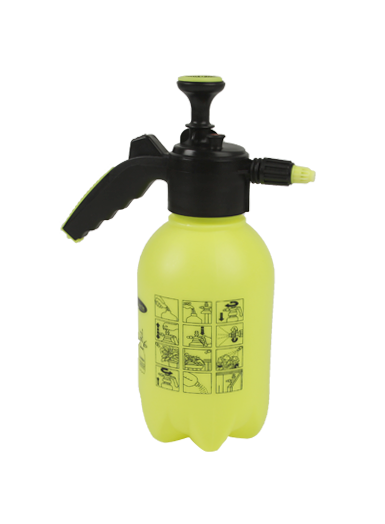It Is A Professional Sprayer Manufacturer Integrating Research, Design And Development.
+86-15824002009 Contact UsAgricultural electric sprayers have become increasingly popular tools for modern farming, gardening, and greenhouse management. They provide efficient and uniform application of water, fertilizers, pesticides, and other liquid solutions, reducing labor and enhancing crop productivity. Compared to traditional manual sprayers, electric models offer automation, consistency, and ease of use.

Key Advantages of Agricultural Electric Sprayers
Electric sprayers provide several benefits that make them highly suitable for agricultural and horticultural use.
Labor efficiency: Electric sprayers reduce the physical effort required compared to manual pumping systems. Users can cover larger areas in less time, which is particularly beneficial for medium to large farms or extensive greenhouse operations.
Consistent spray output: Electric motors maintain a steady pressure, ensuring uniform distribution of liquids. This consistency improves the effectiveness of pesticides, herbicides, or fertilizers and helps prevent over- or under-application.
Time-saving: Because electric sprayers can operate continuously without manual pumping, spraying tasks are completed faster. This feature is advantageous during peak seasons when timely application is crucial for crop health.
Versatility: Many electric sprayers can handle different liquids, including water, nutrient solutions, and chemical treatments. Adjustable nozzles allow users to switch between fine misting and direct streams to suit different plants and crops.
Portability and convenience: Electric sprayers are often designed to be lightweight, with backpack or handheld options for easy maneuverability. Rechargeable battery-powered models provide flexibility without being tethered to a power outlet.
These advantages make electric sprayers an effective and practical solution for both professional and home use.
Functional Features
The performance of agricultural electric sprayers depends on their design and the features incorporated into the equipment.
Motor and pump system: Electric sprayers use a motor-driven pump to generate a steady flow. The pump type and motor power determine the spraying range and pressure consistency. High-quality pumps provide reliable performance over extended periods.
Adjustable nozzles: Many sprayers feature adjustable nozzles to control spray pattern and droplet size. Fine misting is ideal for delicate plants or greenhouse applications, while a direct stream suits trees or larger crops.
Tank capacity: Electric sprayers are available in various sizes, from small 1–5 liter handheld models to 20–25 liter backpack versions. Larger tanks reduce refill frequency, making them suitable for larger fields or orchards.
Battery-powered options: Rechargeable batteries power many modern sprayers, offering several hours of continuous operation. Lithium-ion batteries provide longer lifespan, faster charging, and consistent output compared to older lead-acid batteries.
Durable construction: Tanks are usually made from corrosion-resistant plastic, while motor and pump components are designed to withstand exposure to chemicals. This ensures longevity even with frequent use.
Ergonomic design: Backpack and handheld sprayers often include padded straps, adjustable handles, and balanced weight distribution to reduce fatigue during prolonged use.
These functional features contribute to the sprayer’s efficiency, versatility, and ease of operation.
Performance Considerations
When evaluating agricultural electric sprayers, it is important to consider performance factors to ensure suitability for intended applications.
Spray range and pressure: Electric sprayers typically provide adjustable pressures between 0.2 and 0.5 MPa, depending on model and battery power. Sufficient range allows users to reach taller plants or wider areas without repositioning frequently.
Battery life and runtime: Battery capacity affects continuous operation time. Efficient battery management ensures that the sprayer can cover the required area without frequent recharging, which is important during large-scale tasks.
Chemical compatibility: Tanks, seals, and nozzles must be compatible with the chemicals used. High-quality electric sprayers are designed to handle fertilizers, pesticides, and herbicides without degradation or corrosion.
Maintenance requirements: Electric sprayers require routine cleaning of the tank, nozzle, and pump to maintain performance. Easy-to-clean designs reduce downtime and ensure consistent spray quality.
We will provide you with the latest product
information as soon as possible
